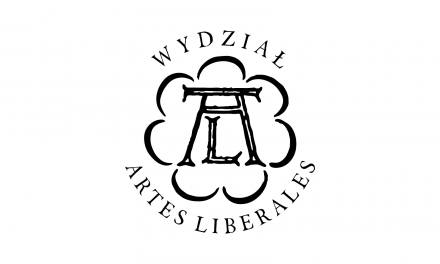6 listopada 2024 r. podczas seminarium „Tradycja chciana i niechciana” dr Francesco Trupia (Uniwersytet im. Mikołaja Kopernika w Toruniu, Uniwersytet w Bolonii) wygłosił referat pt. Europe’s “Otherness” as a Commodity: Rethinking Islamophobia and Antisemitism in Central and Eastern Europe from the Time of “Global Socialism”.
Nagranie wystąpienia dostępne → tutaj.
Abstract
This lecture aims to rethink the phenomena of contemporary Islamophobia and antisemitism by exploring the genealogy of the far-right tradition in Central-East Europe. It particularly aims to illuminate the roots of anti-minority discourse, racism and ethno-nationalism in Bulgaria and Poland by harking back to the state-run racial policies deployed during socialism.
The lecture will shed light on the longue durée of eugenic practices across spatio-temporal breaks in the two countries, thereby looking at the durability of antisemitic and anti-Muslim practices implemented under the guise of the decolonial efforts in the Global South.
Two lines of enquiry guide the whole lecture: first, how did Communist Poland and Bulgaria’s mechanisms of inclusion and exclusion indebt to state-run eugenic practices? Second, how did the decolonial turmoil in the Mediterranean region provide the momentum to deploy a set of racial policies against their “ethnic other”?
Organisation of the lecture
The lecture will be organised in three sections. The first part discusses how post-war Poland and Bulgaria reordered their domestic heritage to cloak the alternative project of Communist modernisation in the attempt of eliminating the remnants of domestic ethnoreligious diversity.
The second shows how the socialist interconnectedness between Bulgaria and the Arab world, as well as that between Poland’s anti-regime critics with those from the Middle East and ‘the West’, were exploited to dismiss the ethnically diverse history of both countries. In this instance, the 6-Day War in 1967 and Turkey’s invasion of northern Cyprus in 1974 will be introduced to explain how the reaction of the Bulgarian Communist Party (BKP) and the Polish United Workers’ Party (PZPR) were entailed to cement power hierarchies and quarrel with internal dissents ascribed as Turkish nationalists and Zionists, respectively.
In closing, the third part postulates that the watchword of internationalism and people’s unity became an ideological commodity to collude with decolonial efforts, unleashing a process of de-globalisation even before the demise of Communism in 1989.
Questions to be addressed
How to rethink latter-day antisemitism and Islamophobia in Poland or Bulgaria through the lens of postcolonial studies?
How do both phenomena continue to operate along the troubling continuum of racial discourse?
How do the very personal and community stories of Jews and Muslims in Poland and Bulgaria, respectively, reveal how the image of the “Other” in Europe has been always used to cement power authorities and erase the “unwanted”?
Main objectives
At the heart of this lecture, is the need to pay attention to the genealogy of race in Central-East Europe between biology and society and re-explore the Comintern through the colonial lens. The lecture will also hinge today’s far-right antisemitic heritage in Bulgaria on that of some Arab (diaspora) organisations, showing the backlash of the global far-right populist waves and its antisemitic and Islamophobic discourse shaped by the interdependence of structural racism and forms of exclusion worldwide.
Main literature
Balogun B (2022) Race, blood, and nation: the manifestation of eugenics in Central and Eastern Europe, Ethnic and Racial Studies 45 (13): 2478-2485.
Barna I, Félix A, Mesežnikov G, Pankowski R, Šternová V (2018) Contemporary Forms of the Oldest Hatred: Modern Antisemitism in the Visegrád Countries, in Bíró A, Lantos Swett K (Eds) The Noble Banner of Human Rights. Essays in Memory of Tom Lantos, Leiden: Brill Nijhoff.
Bjelić D (2018) Toward a Genealogy of the Balkan Discourses on Race, Interventions – International Journal of Postcolonial Studies, 20 (6):906-929.
Boatcă M (2021) The Centrality of Race to Inequality Across the World-System, in Million A, Haid C, Ulloa I and Baur N (Eds) Spatial Transformations. Kaleidospopic Perspectives on the Reconfiguration of Spaces, London: Routledge, 97-108.
Corrsin D S (2016) Works on Polish-Jewish Relations published since 1990: A Selective Bibliography, in: Bloubaum R (ed.) Antisemitism and its Opponents in Modern Poland, Ithaca and London: Cornell University Press, 326-341.
Dragostinova T (2021) The Cold War from the Margins. A Small Socialist State on the Global Culture Scene. Ithaca and London: Cornell University Press.
Erlenbusch V (2017) From Race War to Socialist Racism: Foucault’s Second Transcription, Foucault Studies (22):134-152.
Gruev M, Kalyonski A (2008) Vazroditelniat protses: Komunisticheskiat rezhim i myusyulmanskite obshtnosti, Sofia: CIELA.
Hristov H (2014) Strogo Sekretno: Ministur Dimitur Stoyanov pred aktiva na BKP za po-natatutnoto rasvitie na “vuzreditelnyat protses”. Available at https://desebg.com/2011-01-13-09-25-08/1702-2014-02-14-15-03-32.
Jarząbek J, Szydzicz M (2018) Beyond Recognition: The Polish Perspective on Israeli and Palestinian national identities: Preliminary Assumptions of Research, Polish Political Science Yearbook, 2 (47):319-330.
Kamusella T (2024) “Antisemitism: the Foundation of the Polish Nation? Available at https://neweasterneurope.eu/2024/01/17/antisemitism-the-foundation-of-the-polish-nation/
Kamusella T (2019), Ethnic Cleansing during the Cold War. The Forgotten 1989 Expulsion of Turks from Communist Bulgaria, London: Routledge.
Karkov N (2019) Dialoguing between the South and the East: An unfinished project, in: Manolova P, Kušić K, Lottholz P (Eds) Decolonial Theory and Practice in Southeast Europe, Special Issue, 33-52.
Krajewski S (2022) Poland and the Jews. Reflections of a Polish Polish Jew, Krakow: Wydawnictwo Austeria.
Lipska M, Talarczyk M (2022) Hope is of a different Color – From the Global South to the Łódź Film School, Warsaw: Museum of Modern Art in Warsaw, Books n°19.
Michlic J B (2006) Poland’s Threatening Other. The Image of the Jew from 1880 to the Present, Lincoln: University of Nebraska Press.
Ragaru N (2023) Bulgaria, the Jews, and the Holocaust. On the Origins of a Heroic Narrative. New York: University of Rochester Press.
Stola D (2015) Fighting against the Shadows: The Anti-Zionist Campaign of 1968, in: Blobaum R (Ed) Antisemitism and its Opponents in Modern Poland, Ithaca and London: Cornell University Press, 284-300.
Turda M (2010) Whiter Race? Physical Anthropology in post-1945 Central and Southeastern Europe, Focaal – Journal of Global and Historical Anthropology 58: 3-15.
Turda M, Balogun B (2023) Colonialism, eugenics and ‘race’ in Central and Eastern Europe, Global Social Challenges Journal (2): 168-178.










